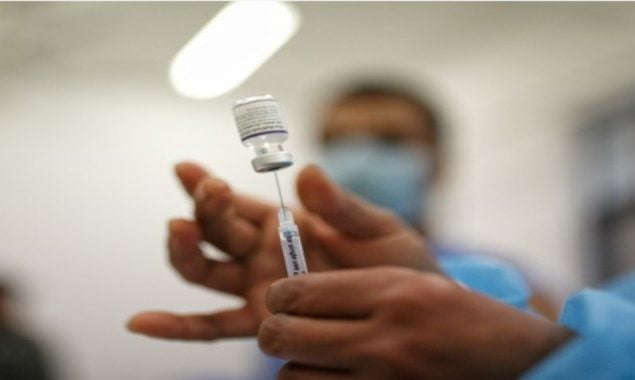
Image: Xinhua
Germany’s Health Minister, Karl Lauterbach, predicted that the roll-out of a coronavirus vaccination targeting the Omicron form will be postponed for months, maybe until autumn. “September may be the goal month,” Lauterbach said as he arrived at a Brussels meeting of EU health ministers. The EU mostly uses mRNA COVID vaccines, particularly one produced jointly by BioNTech and Pfizer in Germany. Early this year, Omicron-specific vaccinations were scheduled to arrive. In January, Pfizer CEO Albert Bourla stated that one would be available in March. Then, last month, BioNTech founder Ugur Sahin stated that it would be accessible in April or May.
While COVID hospitalizations and deaths have decreased in the European Union as a result of a successful vaccination campaign, confirmed new cases have been on the rise again, mainly by the highly contagious Omicron form. Omicron, which was originally discovered in southern Africa in November of last year and quickly spread over the world, is now the most common type, accounting for nearly all new cases. It has mutations that allow it to evade parts of the defences elicited by existing vaccinations and prior infections, and it comes in two sub-lineages: BA.1 and BA.2, the latter of which is gaining ground. While COVID vaccines created for previous strains have proven to be effective in preventing infections, they have been less effective in preventing infections in the first place.
That element has become increasingly crucial since existing vaccinations’ efficacy begins to fade after a few months, necessitating booster campaigns. Both BioNTech/Pfizer and mRNA rival Moderna announced clinical studies of Omicron-specific vaccinations in late January. While the findings have yet to be published, early animal trials suggest they “provide no advantage over a third dosage of current vaccines,” according to an article published last month in the science magazine Nature. Boosters from both original COVID vaccinations and Omicron-specific vaccines enhanced antibody response in eight rhesus macaques in one study, but there was no evident advantage for the latter.
Read More News On
Catch all the Health News, Breaking News Event and Latest News Updates on The BOL News
Download The BOL News App to get the Daily News Update & Follow us on Google News.




